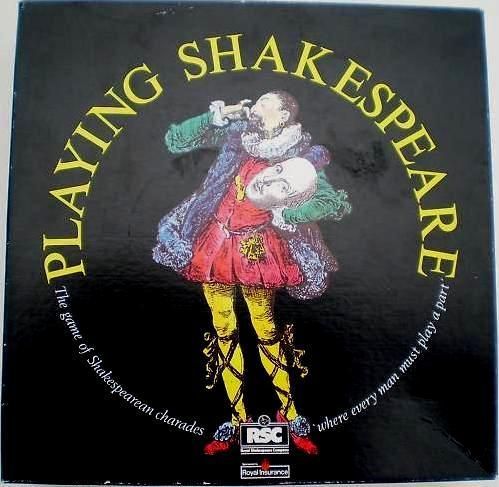Playing Shakespeare (1990) Board Game
Playing Shakespeare is a board game released in 1990 by Oxford Games, Ltd. It is designed for 4 to 24 players, making it a great party game for larger groups. The game is inspired by the works of William Shakespeare, with players taking on the roles of characters from his plays.
Game Components of Playing Shakespeare
How To Setup Playing Shakespeare
To set up the game, players start by distributing the character cards and action cards. Each player selects a token and places it on the starting position on the board. The rule book provides detailed instructions, but essentially, players are ready to begin once all cards are shuffled and each player has their tokens and cards.
Gameplay Mechanics and Game Objective
Player Experience
Playing Shakespeare offers a unique blend of theater and social interaction. Players must use their acting skills and knowledge of Shakespeare to guess the characters or quotes being acted out. This game encourages teamwork, as players can work together to guess, and also fosters a fun, competitive atmosphere.
Pros
Cons
Personal Thoughts on Playing Shakespeare
Playing Shakespeare is ideal for those who enjoy theater, literature, and creative expression. It is a great game for families with older children ( aged 12 and above) and for groups of friends who appreciate Shakespearean works. While it may not be the best fit for everyone, it offers a unique and entertaining way to engage with classical literature.
We are supported by our audience. When you purchase through links on our site, we may earn an affiliate commission, at no extra cost for you. Learn more.

